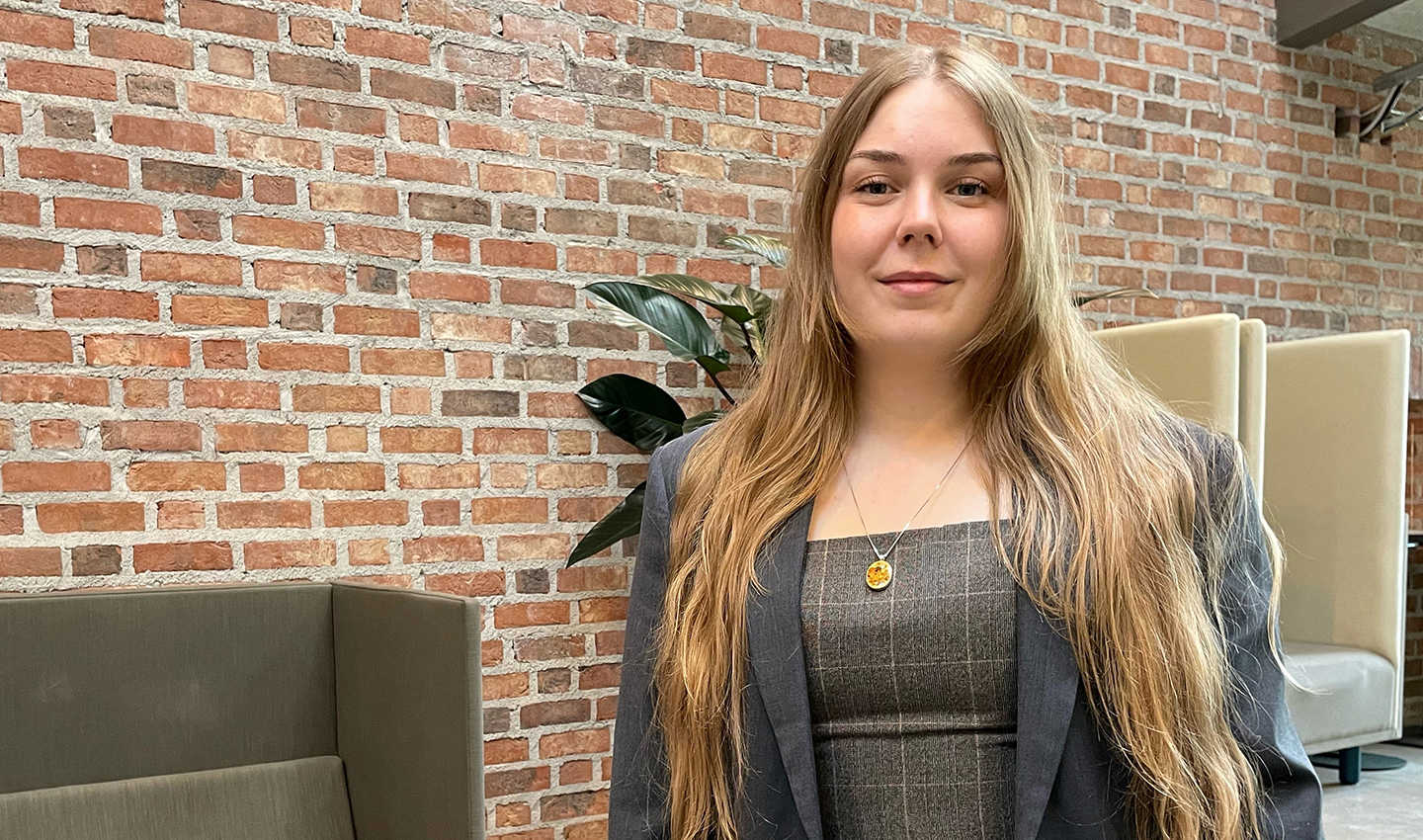She gets the tools to tackle environmental impacts of the textile industry
Why did you choose to study the Master’s programme in Technical Textile Innovation?
I felt that I wanted to learn more about how to tackle environmental problems that the textile industry has from a textile technology perspective. My Bachelor’s degree is in Textile Product Development and Entrepreneurship, which I also studied at the University of Borås, and this education gave me a good foundation with a holistic perspective in so many ways to look at the problems, but I wanted to learn more about textiles and deepen my knowledge.
This is a new Master’s programme at the University of Borås. What do you learn in it?
I have now, almost one year into the programme, learned an incredible number of new things and really feel that it met my hopes regarding advancing my understanding of textiles. I get to learn a good combination of more technical knowledge while connecting it with the continued holistic perspective of the textile value chain, with a big focus on innovation.
What is the best thing about the programme so far?
That I get answers to many of the questions I asked myself in the Bachelor’s programme. A lot of what I have thought about regarding the industry has been too complex for my Bachelor’s and has limited my curiosity to a certain extent. I am very interested in the environmental impact that the industry has and although it is a complex area, I have found that it has really given me more tools on how to look at the problems and potentially one day tackle some of them.
What did you do before you started your studies at the University of Borås?
I worked as a sales assistant where I did sell textile products, among other things. It was more of a sabbatical year; I knew that one day I wanted to seek further studies, but my interest in textiles has always been with me more or less.
What career opportunities will you have after your studies?
I will be able to apply for jobs as a textile product developer and similar professions. I have researched the market a bit and it is a saturated job market in Sweden, especially in the big cities. But it is an advantage to have a Master's degree of course, and I would say that more opportunities will be available to me now.
What do you do dream about doing in five years?
In five years, I hope to work at a company with a strong focus on sustainable product development as a textile product developer. I could also see myself working in other countries as the Swedish market is not necessarily something that I will limit myself to.
Why did you choose to study in Borås?
I chose Borås when I first saw the Bachelor’s programme and it suited the broad and somewhat vague requirements that I had for my education. I wanted to find out a bit about everything about the textile value chain, and I had an already significant interest in sustainability.
How did you find information about this educational programme?
I saw that the University of Borås offered several different textile educations, so I went to an open house at the Swedish School of Textiles to find out more. Personally, I felt it gave me incredibly good information which helped guide my choices as the information provided online was a bit too general.
What is the student city of Borås like?
It is small, but I also grew up in Gothenburg, so of course that affects my perspective. It's a good student town, though, I'd say. There’s a lot of fun things to do, the grocery stores are even adapted to be more student-friendly, and second-hand stores are everywhere. If you are interested, it is easy to travel to Gothenburg.
Where is your favourite place on campus?
I would probably say that it is the staircase outside The Food Company, by the Textile Fashion Center. That part of the building is aesthetically pleasing to me, and I like to sit in their chairs and work while watching others walk around.
What tips do you have for those considering applying to the same programme as you?
If you come from the same Bachelor’s as me, then be prepared that there is a knowledge gap at the beginning that you will have to work at. You study some courses together with the Master’s programme in textile engineering that are at an advanced level. It's going well, but you need to have the drive and the willingness to learn, because it can be a lot. In addition, there are a lot of courses within creativity and innovation that help you use your new knowledge, which means that everything is balanced out a little more.
Why should people study at the Swedish School of Textiles?
You get so many opportunities to actually create things! There is weaving, tricot, nonwoven, sewing/confection, and several different dyeing/finishing labs with an incredible number of different possibilities. In addition to that, there is also a large environmental focus and broad collaboration with various organisations that help companies start up.
Learn more
Master Programme (Two Year) in Technical Textile Innovation
Text: Sara Lundgren
Photo: Sara Lundgren
Published: 2024-04-09



